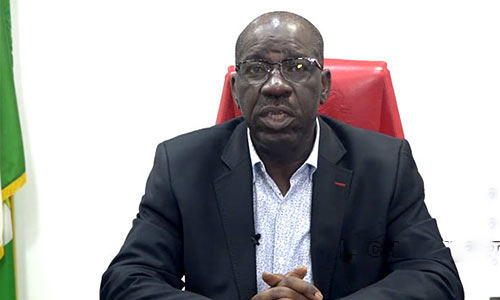LAW ENFORCEMENT NEWS UPDATES 14/01/2022
NSCDC Shortlists 5,000 For Employment

The Nigeria Security and Civil Defence Corps (NSCDC) has shortlisted 5,000 successful candidates for employment in the Corps in 2022.
Mrs Aisha Rufai, Secretary, Civil Defence, Correctional, Fire and Immigration Services Board (CDCFIB), made the announcement at a news conference in Abuja, on Thursday.
Rufai said that the board had approved the final phase of the 2019 recruitment, thereby, directing all prospective applicants to check the application portal.
She said that screened applicants should visit; http://cdfipb.careers from Jan. 17, to check for further information as it would be accessible only for successful candidates.
According to her, the portal will not be open to candidates who have not been successfully shortlisted.
“Applicants should check for their names, documentation location, guidelines for documentation and print out their invitation slip without which they will not be allowed to participate in the exercise,” she said.
The secretary said that the documentation was free and would commence from Jan.31.
Mr Ahmed Audi, NSCDC Commandant General, stated that the recruitment was specifically for 2019 applicants, adding that after documentation, all successful candidates would be invited for training.
Audi said that 1,477,042 candidates applied in 2019, but were scaled down to 746,762 when some applicants did not meet up with the required height and age as specified in the job publication.
“A total of 217, 000 candidates successfully uploaded their certificates and were shortlisted for the Computer Based Assessment Test (CBAT).
“Out of 113,105 candidates shortlisted, 53,116 sat for the CBAT in December 2020, across the country, and 6,500 were shortlisted for further screening,” he explained.
According to the commandant general, the recruitment lingered till 2022 due to COVID-19 and the need for proper vetting of candidates.
“Recruitment is a process and it is not easy to vet about 1,000,000 people as vetting is very fundamental and takes a longer time,’’ he said.
Audi added that vetting was environmental, institutional and family-based. (NAN)



